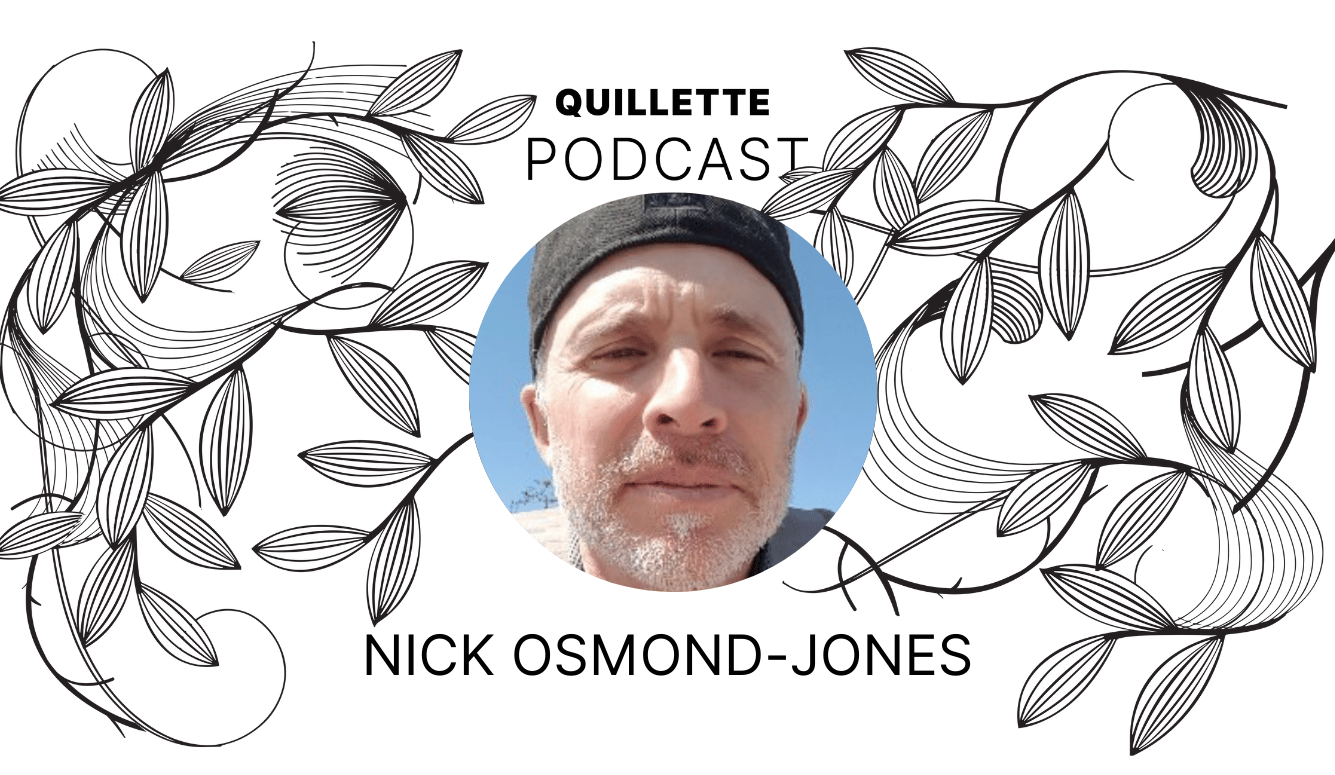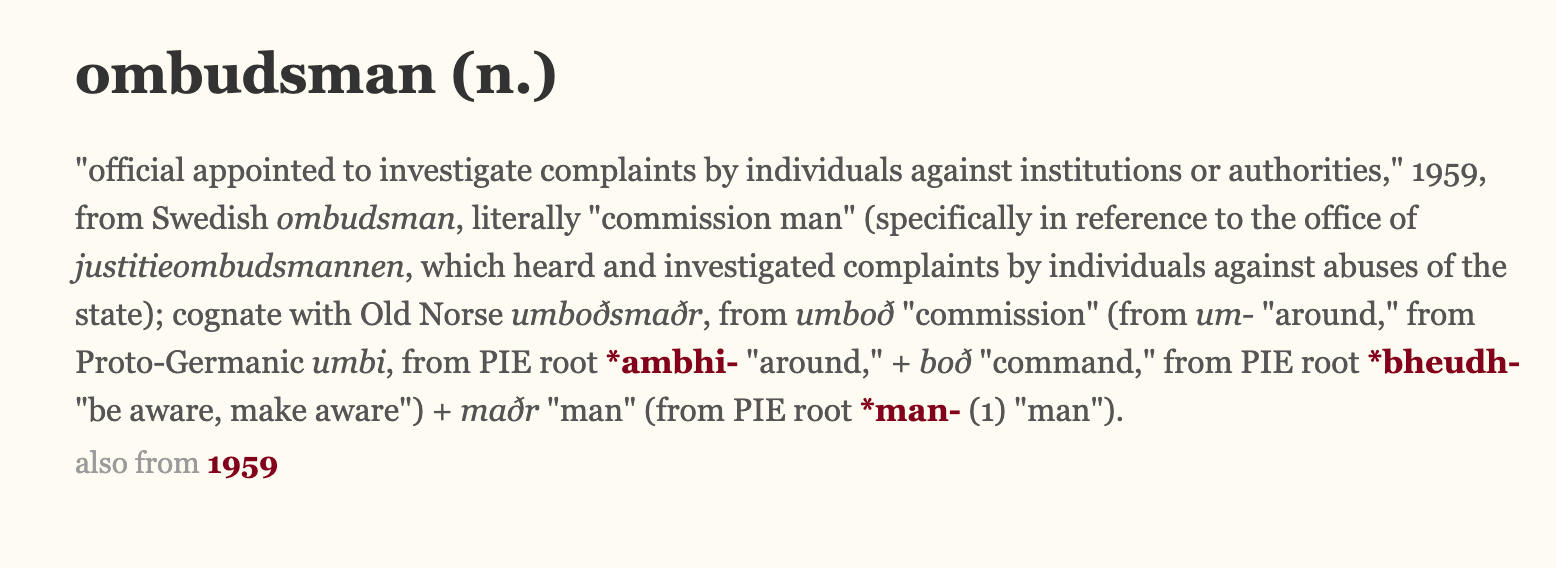Podcast
Podcast #258: Canadian Bureaucracy and Its Discontents
Iona Italia talks to Nick Osmond-Jones about the impacts of some absurd DEI directives on Canadian public service.

Introduction: My guest this week is Nick Osmond-Jones. Nick is a former researcher at the Office of the Ombudsperson in British Columbia, Canada. He resigned from his job because he felt that he was not able to speak out openly about what he saw as an increasingly censorious atmosphere of ideological social-justice lockstep. Things came to a head after he leaked the slides that accompanied an office-wide DEI training to my colleague Jon Kay here at Quillette, slides that, among other things, suggested that the ideas underpinning the Third Reich and apartheid South Africa were borrowed from the Canadian Constitution. Nick talks in some detail about how DEI and related ideas affected the ways in which things were done at his former workplace. We also focus on the specifically Canadian aspects of how this was understood, expressed, and handled.
I hope you enjoy my conversation with Nick Osmond-Jones.

Iona Italia: Welcome, Nick.
Nick Osmond-Jones: (00:50.174) Thanks for having me on.
II: (00:52.974) My pleasure. Perhaps we should begin by explaining what your work actually entailed. You were an investigator for the Ombudsperson’s Office. That’s actually the first time I’ve ever heard the word “ombudsperson.” And I’m not sure that I even fully understood before reading your article what an ombudsman’s office, as we would call it, would normally do, what kind of work that entails. So let’s start by talking about that a bit.

NOJ: (01:31.75) Yeah. So, the name “ombudsman” is an interesting thing because it comes from, I think it’s Denmark or something like that, one of the Nordic countries. And I think directly translated, the “man” in “ombudsman” isn’t actually “man.” Directly translated, it’s something like “public defender,” “public investigator,” or something like that. So translated, it isn’t “man,” but we’ve changed it to “person” because we didn’t like having “man” in the title.

The idea of it is that you have an ombudsman for all sorts of different organisations. The idea of it is that it’s an independent organisation that’s there for clients or people who have a complaint or a concern about it and they can bring that forward and they can have it independently investigated. That’s it in a nutshell, really.
II: (02:24.624) So, people who have a complaint specifically about state employees of British Columbia in this case.
NOJ: (02:32.69) Yeah, yeah. They would call them … the language we used in the office was “authorities.” And I think we had several thousand authorities that we’d investigate. So it’s more than just your ministries of health or your ministries of education. It’s also state companies. We’ve got a power company, BC Hydro there. So there’s people complaining about their electric bills. We’ve got a provincial company that provides auto insurance. So you’d have people complaining about their auto insurance. Professional regulatory bodies for lawyers, for medical associations, jails, all sorts of things, a whole gamut of organisations, universities, schools, almost anything that’s being funded with public money.
II: (03:25.838) Right, and you were an investigator, so that means you were looking into some of the more serious complaints? Or what was your precise role?
NOJ: (03:32.902) I was on a team. They called it the “regulatory programs team,” which wasn’t that meaningful to describe what the team was. But we had files, everything from… I talked about the auto insurance, so we’d get complaints about that. I got complaints about people that were applying for licences to harvest logs or harvest oysters or then the next day you’d get a complaint from somebody in jail saying that they’re being abused by the guards or they’re receiving an inadequate or disgusting diet or something like that. So you never knew what kind of complaints you’re going to get. So it was really interesting that way because you get a complaint about an organisation that you’ve never heard of that’s providing a service that you didn’t even know existed. And then you have to quickly try to become an expert on that, make a determination about whether people are being treated fairly. So it was neat, I was constantly researching.
II: (04:35.216) You said that you noticed the impacts of DEI, diversity, equity, and inclusion ideology starting in the 2010s already. What were the first signs of that? How did it first affect your work at the office?
NOJ: (04:55.934) It first affected my work in the office just that you noticed the rituals starting to slip in. That’s how it would start off. Rituals and just a change in tone and things. When I first started, people were quite scrupulous about leaving their politics at the door and not discussing politics. Everyone in the government is quite interested in politics and what’s going on because it affects our careers and stuff like that and what we’re going to be doing at work, but people would discuss it in a non-partisan sort of way. Not in a rah rah for this party or rah rah for that party. But isn’t it interesting that this thing has happened? And you’d see that start to shift where people would quite openly criticise right wing figures and conservative figures, especially when we had a more conservative government, which confusingly was called the “Liberal Party” at the time.
II: (05:55.31) Yes, that’s the same here, also the “Liberals” here. Yes, it’s the right-wing.
NOJ: (05:55.688) People would start … in our province, they tried to change their name to escape that, but then have recently been disbanded. There was no escaping it, I guess. But people became a lot more overtly partisan and things started slipping in like land acknowledgements and just casually putting down Canada as a country and taking it for granted that the existence of things like widespread systemic racism, that people would start to speak like these things were a given. I think the land acknowledgements are really quite foundational because I didn’t think a lot about them at the time, but it’s a ritual. And it’s a ritual that slipped its way in and once you’ve started putting up with it and you’re doing it, you don’t realise until you’ve been doing it. But once you’ve been doing it for a few years, it’s almost like you’ve compromised yourself already. And you’ve also opened the door. If you didn’t mind performing this ritual, well, what’s one more thing? What’s putting your pronouns into your email signature, right? You’ve already got a foot in the door. Just step through.
II: (07:21.882) Yeah, we have the same thing here, of course, the Welcome to Country, which is very similar to the land acknowledgement. Although I think that the Welcome to Country is a little bit more … I prefer it to the Canadian-style land acknowledgements because it at least ends by saying something like “We celebrate all Australians,” which is a nice sentiment to end on. But I find it fundamentally nonsensical, the idea that there’s a kind of blood-and-soil connection between specific groups of people and a country, especially given that there’s never any genetic testing of anybody to see whether they really are descendants of the first indigenous Australians or not. And the definition of who is indigenous is also quite contested and could be only a few percent of your DNA. And I just find it contrary to my liberal and universalist beliefs, the idea that land intrinsically belongs to people as a result of their heritage, rather than belonging to everybody who has been permitted to legally emigrate and who is part of building the country and part of a productive workforce, et cetera.
NOJ: (09:05.746) Yeah, there’s a lot of things packed into it. I think what take away from land acknowledgements a lot of the time is that it sets up to say, here’s the status of the land, here’s the historical wrongs that have happened. And we are now recognising that the different people on this land have different statuses here. And I would assume different rights and different responsibilities here on this land. One of the things a lot of people will add is to say that I’m an uninvited guest in this land, which I always find that one quite wild. That’s almost a synonym for being an invader, really. If you’re an uninvited guest, you should obviously leave.
II: (09:58.195) Yeah, that is really odd. Aren’t we all uninvited guests on this Earth in a sense?
NOJ: (10:04.731) I guess, yeah, we are on the planet, before we look at the meta.
II: (10:17.722) Things started to become more extreme moving into the 2020s and the period of peak woke and there were some quite extraordinary DEI trainings that took place in your workplace. Can you describe some of those trainings that you attended? And then maybe we can get onto the specific one that you leaked the details of to Quillette, which upset and embarrassed the people back at the Ombudsperson’s Office.
NOJ: (10:55.516) The first one that I remember was probably only two weeks after I joined the office. There was a presentation on trauma-informed approaches to dealing with complaints. It was presented by a lawyer who billed herself as a “trauma-informed lawyer.” So it’s all about speaking to people and realising that they’ve been through trauma and approaching everything that way. If they’re being upset, that’s the reason why. If they’re calling you because they might be in jail or involved in crime or addicted to drugs or anything like that, you’ve got to look at it through that trauma-informed lens. Some of that’s actually pretty useful and pretty true. I took a lot of things away from that. At one point, the presenter was an Indigenous and she showed a video, an Indigenous hip-hop group, basically saying that they were frustrated with Canada and they were sick of, from what I took from it, performative things from white Canadians. And then she asked people to comment on it. I commented on it. She said, “What do you think they’re saying?” And I said, “I think they’re sick of performative things such as land acknowledgements, which might make the people saying it feel pretty good about themselves, but it doesn’t do anything here in Canada, in the places where Indigenous people live, the reserves. A lot of them still don’t have clean drinking water, which is a problem that’s been known for so many years and still hasn’t been solved. There’s unresolved land claims in the courts that have been going on forever and ever and ever. We’ve still got huge disparities and poverty and every kind of sort of indicator of wellbeing. And getting up at the beginning of your team meeting and acknowledging the land and the traditional waterkeepers and that you’re an uninvited guest doesn’t really do anything at all to solve any of that.” And the presenter took that in stride and said, “Yeah, those are all valid criticisms. Actually a lot of indigenous people feel the same way,” and rolled with it.
So I thought, okay, I’m here in an office and they’re presenting a lot of this stuff, but it seems to be okay to provide feedback. I had a few staff members who said, “Hey, that was a good comment. Thanks for saying that.” So I thought I was in a fairly free-thinking place. And I noticed in the office too, there would be a lot of heated debates about fairness issues all the time. And people didn’t seem shy about speaking their minds, even if they’re speaking to somebody senior than them. But there were more and more of these ideological training sessions.
The one where I first got myself into trouble, there was a presentation by a lawyer, a trans lawyer, non-binary, going by they/them pronouns, who’s a fairly significant person in the legal community here in Canada. She’s appeared at the Supreme Court of Canada, billed as an expert on transgender legal issues. So she gave a presentation that was really a lot of stuff that I would say is just plain nonsense. That biological sex is just a social construct. The different gender roles that exist were colonially imposed on First Nations people here in Canada. They didn’t really exist before that. That we were obliged to treat anyone by their expressed gender, not their sex, in any situation, including policy situations and legally. Any Quillette listener, they know the standard rigmarole. And when there was time for questions, I put up my hand and I tried to ask a question, the gist of which was, “This is all super contentious, how do we speak about this respectfully? Because there’s a lot of people who believe that sex is an important thing for policy and it’s still relevant. And we need to be able to talk about that without people who raise that being called bigots. Because there’s a lot of people who feel that way and there’s very logical reasons for them to do so.” And the presenter just went up one side of me and down the other, just basically interrupted me, let me know that she wasn’t going to tolerate the bigotry that I was doing, equated it with being racist to black women and keeping them out of bathrooms, raised the spectre of genocide and dog whistles and all those things. So I shut my mouth, said thank you for berating me basically and was quiet about it. I had a few people reach out to me in the office and say, you know, I think you were right. But a few weeks after that, I was disciplined for it. I was called into a meeting and the powers-that-be let me know that that wasn’t okay. You can’t question these things.

II: (16:29.648) We actually have recordings from that. We have a recording of your interaction with this person who … I think her name is … I’m not going to use they/them pronouns because I’m a non-believer in non-binary and I think my religious views on that should be respected. But her name is Adrienne Smith, believe. She’s also a poet, and I’m actually quite fond of her poetry. I heard some poetry that she performed on stage. She performed some love poetry that she’d written, and I actually quite liked the poetry, and I thought she performed rather well. But that’s completely different from this completely irrelevant to this topic. [Editor’s Note: I think I may have confused her with a different Adrienne Smith.]
NOJ: (16:56.744) Yeah, I missed out on that sensitive artistic side that she has. Maybe under different circumstances.
II: (17:24.179) Yeah, it was actually quite eloquent. But I was struck by how Canadian your interaction was. You were so polite. You were like, I’m really sorry. And then that was the end of the conversation. It’s quite extraordinary.
NOJ: (17:42.43) I reverted to type, I guess.
II: (17:49.504) It seems absolutely extraordinary that this was considered a disciplinary matter because you were so mild and restrained in your objections. You didn’t even say, I think this is nonsense. You just said we should perhaps consider that this is controversial, not everyone agrees, etc. There was nothing that you said that would in any way have been objectionable to a normal listener, as far as I can tell. This was not some fiery … you’re not some fiery gender-critical campaigner.
NOJ: (18:31.506) Well, I think they would argue that what I did was even more dangerous because instead of just coming out and saying it, I dog-whistled, right? I dog-whistled and tried to couch it in polite language. So you’re really damned either way, right? If you come out and you bang your fist on the table and you say, I think this is BS and I’m not going to stand for it. Well, then you’re angry and you’re terrible and you’re on the verge of committing violence. And then if you try to be polite and really engage and try to respect their views and bring them in, then you’re just couching dog-whistles of genocide in the polite language of rationality or whatever. So there’s no winning. You’re evil either way, unless you just hold the line.
II: (19:27.812) I thought the other interesting thing was … your boss, when he called you in, if I’m remembering correctly—please correct me if I’m wrong—he suggested that you needed sensitivity training because what you’d said could have been seen as offensive. So you asked, “Did you find what I said offensive?” And he just hedged on that. He clearly wasn’t able to honestly say that he did find it offensive because it was just so polite and Canadian. There’s just no way. And so he said, “That’s irrelevant. The person concerned found it offensive. So you have to go to the training.” And he asked you if you would voluntarily go and when you said no, he said you would be forced to go. That’s a very surprising and I think very typical way of dealing with these issues is the perception is more important than the reality. Someone was offended and therefore you need to be retrained, you need to apologise, et cetera.
NOJ: (20:40.53) That really is how it went down.






